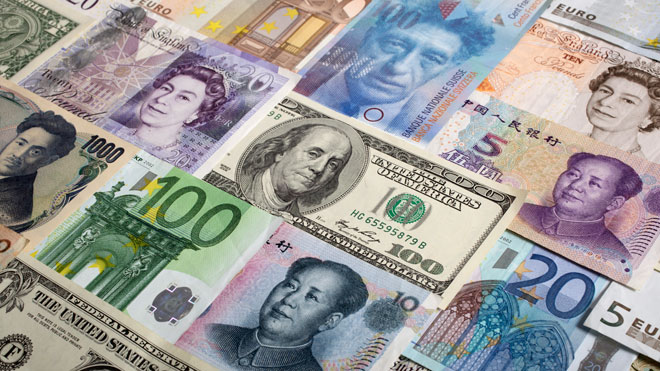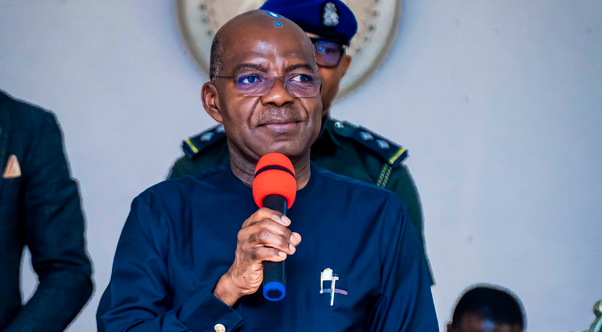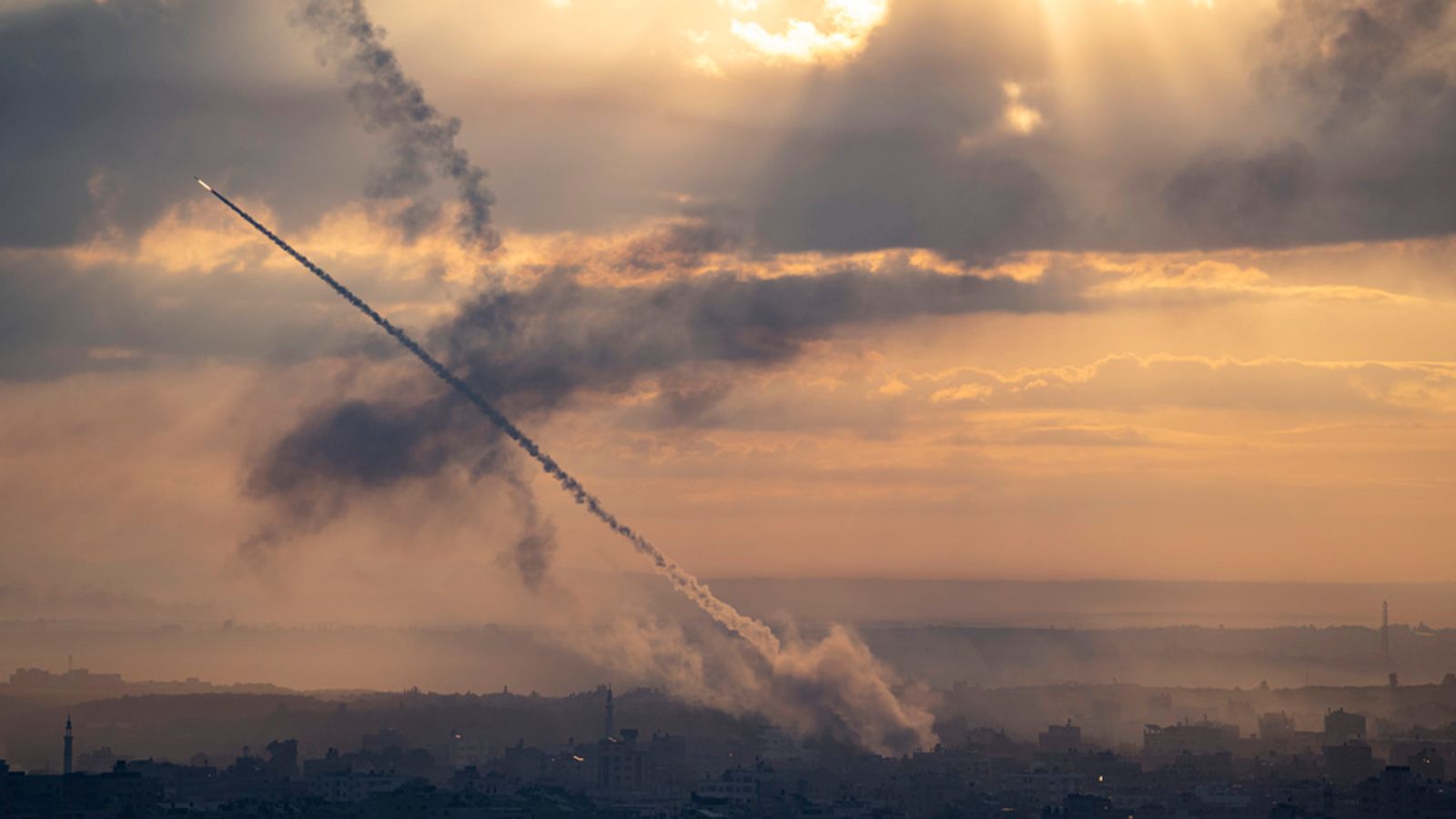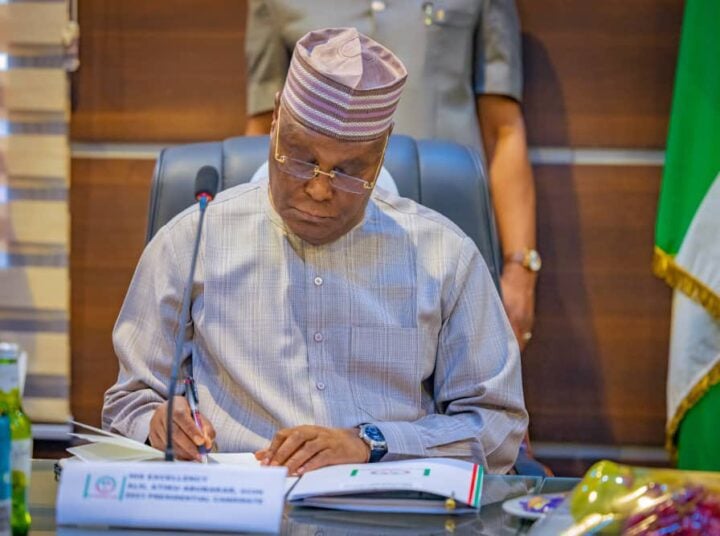Agege train station
The fascinating infrastructure of the Nigerian Railway Corporation (NRC) has been a huge source of relief for most Nigerians who have longed for safe alternative transportation in the country. With the new comfy trains shuttling Lagos-Abeokuta-Ibadan, Abuja-Kaduna, Warri-Itakpe and the Iddo-Ijoko, most passengers no longer need to undergo strenuous road travels. Hence, the traffic to the train stations, especially the Lagos-Ibadan corridor inaugurated by former President Muhammadu Buhari in 2021, has been consistent.
Two years later, the 500-seater train service has become notorious for extortion by its officials. In this investigation, TheCable’s BUSOLA ARO travelled through the Lagos-Abeokuta-Ibadan corridor where she witnessed extortion and corruption by officials of the NRC.
On September 3, one Boosu Bakope, made a post on X, formerly Twitter, alleging ticket racketeering by officials of the NRC on the Lagos-Ibadan train.
“Hello @info_NRC , your staffs are charging 2k N for a 3k trip from passengers instead of buying ticket. Like half of the passengers inside this coach 8 don’t have ticket. Even the ticket checking agents are all in it. I’m tired of the corruption at every level in this country,” the X user wrote.
Advertisement
I decided to embark on a trip via the train to Ibadan to ascertain the situation.
Travelling by train may not be everybody’s first choice when thinking of visiting Ibadan or Abeokuta; but definitely, everyone desires to travel in a very cosy way.
Catching a train to any of these destinations from the Babatunde Fashola train station in Agege, Lagos state, may not be as easy as it should be for a first-timer.
Advertisement
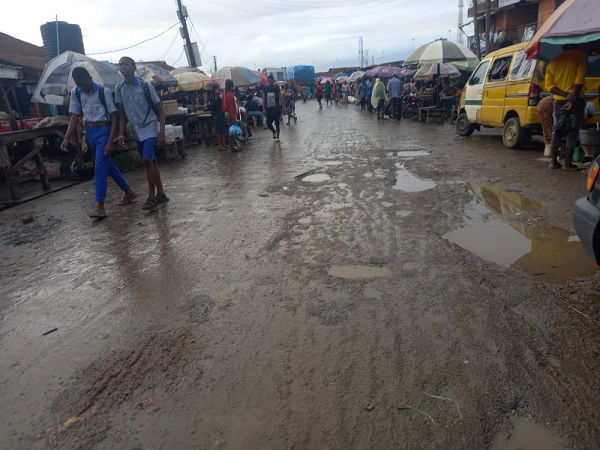
At exactly 7:00 a.m., I headed to the Agege train station with the hope of boarding a train to Ibadan by 8:20 a.m.
Arriving at the Agege bus stop at exactly 8:10 a.m., just under the bridge, the easiest form of transportation to the station was a motorcycle.
The train station from the bus stop was less than a 10-minute drive. At about 8:15 a.m., I got to the station. Despite arriving at that odd time, people were hurried into one of the offices to grab a ticket.
There are three categories when purchasing a ticket. Depending on where your destination might be, there are different rates for different folks.
Advertisement
To Ibadan, passengers could get a ticket costing N9,600 (first class), N6,500 (business class) and N3,600 (standard class).
Obtaining the first two categories of tickets is likely not going to attract any form of suspicious activity.
However, I observed that not many passengers headed straight to the ticket session to get their tickets to Abeokuta or Ibadan.
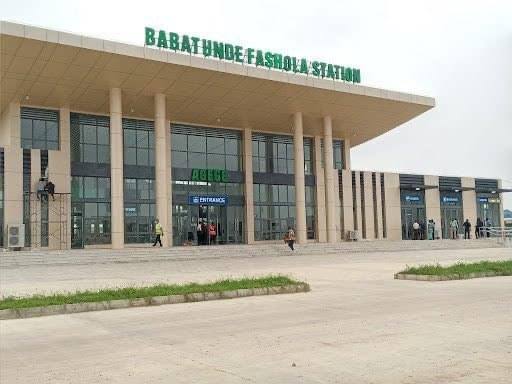
From my observation, the ticket room is most times less busy during the weekdays (between Tuesdays and Thursdays).
Advertisement
Meanwhile, the weekend always has an overwhelming crowd. At this time, the crowded activity at the train station may seem ordinary for a first-timer until one takes a closer look.
My findings weren’t far-fetched. It has been noticed by some passengers.
Advertisement
OFFICIALS HELP GOVERNMENT ‘COLLECT FUNDS’
At 8:18 a.m., I was hurriedly given my ticket after paying N3,600. Due to the limited time I had left to get to the train park, I wasn’t allowed to fill in the passenger manifest. Onboarding started at exactly 8:20 a.m. Passengers had waited for the train coming from the Mobolaji train station, Yaba, to pick up its next set of travellers.
Advertisement
At this point, people rushed to get on the train because we had just five minutes to board.
As we moved, I observed that officials of the NRC coordinated passengers’ movement. While boarding, a particular passenger was struggling to make a transfer to one of the officials.
Advertisement
The scenery was that Tomiwa, the passenger, had gotten to the station later than expected.
Narrating his ordeal, Tomiwa said his driver had some issues with LASTMA officials which ended up delaying him. Tomiwa was forced to leave the driver and run down to the station through the back.
“So, when I got here, I just crossed the tracks through the market and came in from the back to save time,” he told me.
“When I got there, I asked one of the representatives to buy a ticket. He agreed. He said I should wait inside the train while he ran to get the ticket and I made a payment to his account.”
Tomiwa had to transfer to Fagbemi Omosaye’s bank account during this engagement.
“I will account for the money. You have to transfer before you leave the station,” Omosaye, one of the NRC officials, said.
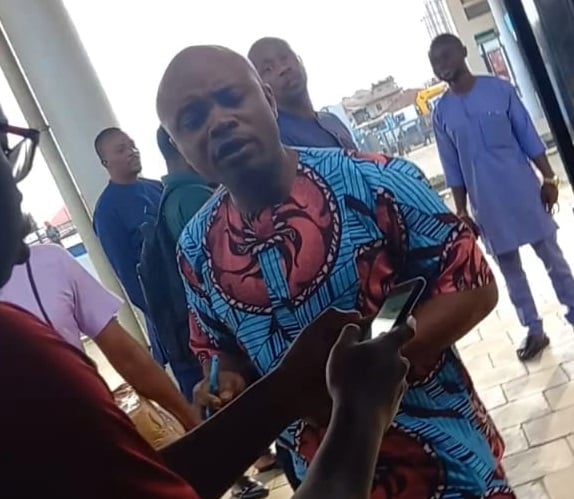
While Tomiwa made the transaction, other officials stood by to witness it.
Meanwhile, on the trip to Ibadan. I observed how a senior official, together with ticket checkers through the 9 coaches, confirmed payment/tickets.
Some of the passengers who got on the train at a station where there were no ticket booths were asked to pay in cash to an official in the NRC uniform.
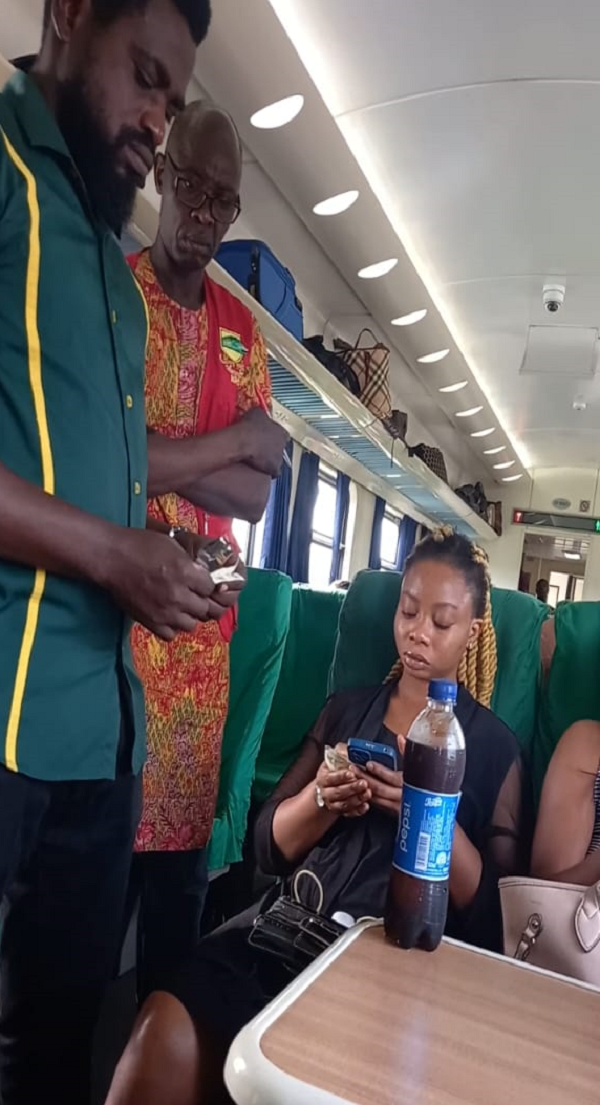
According to a tweet by Bosun Bokope, NRC staff had been seen to have engaged passengers directly to get fees below the fixed rate, outside the counter and some even without tickets.
“Hello @info_NRC, your staff are charging 2k N for a 3k trip from passengers instead of buying a ticket. Half of the passengers inside Coach 8 don’t have a ticket. Even the ticket-checking agents are all in it. I’m tired of the corruption at every level in this country, ” Bokope said.
“Yes, mostly passengers going to Abeokuta. The passengers are now transferring 2k to their dedicated account.”.
A BRISK BUSINESS FOR NRC OFFICIALS
On my journey back to Lagos, while waiting for the next boarding time, I was stopped on my way to the ticket booth by one of the security officials who was on duty to safeguard the train service to Lagos.
Philip, the security official, had asked me not to bother getting a ticket, adding that once it was 3 p.m., I could join them on the train.
“Once 3 pm reach, she go join us enter,” Philip told his other colleagues in pidgin English.
A female security operative among them, who is an official of the Nigeria Security and Civil Defence Corps (NSCDC), took it upon herself to “safeguard” me.
The security official had led me to Coach 9 where they had their special corner. Officials such as the army, police and the NSCDC were there to carry out their duties.
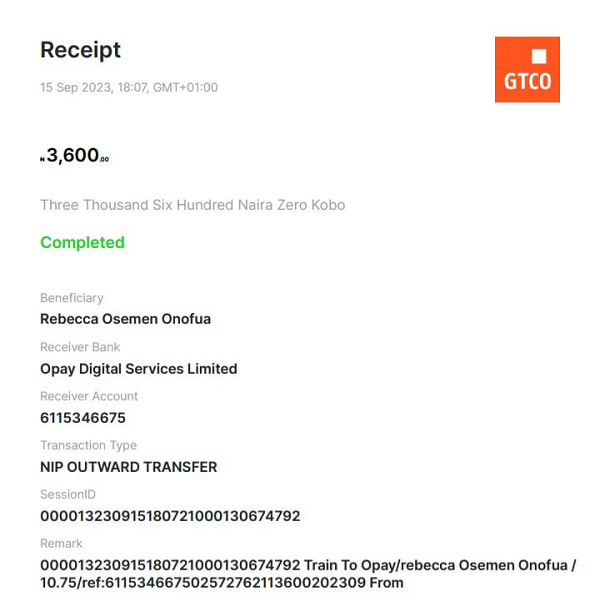
Thinking I had got access to a free ride, I was curious to know why.
The journey went on smoothly until checkers came to ask for my ticket. Without stress, the NSCDC official told the ticket checker, “She is with me”.
Then I realised that some of the passengers on that coach never had to show their tickets.
Also, this time around, the senior official was not with the checker and out of three checkers who went during the morning train trip, just one was there to confirm the tickets.
Surprisingly, when we arrived at Kojola, a train stop before arriving at Agege, the female official approached me and whispered into my ears.
“Has Phillip come to you for money?” she asked.
Perplexed, I answered No.
She asked that I bring out money to pay her as I was close to my destination. I reached out to my purse and was about to hand over N3,000 cash to her, but she declined, saying it wasn’t acceptable to collect less than N3,600 for a standard ticket.
She spoke to her colleague who sat opposite her and asked if I could do a transfer and he supported it.
The female official spoke to one of the police officers about an alternative method to make payment.
“If this lady no go fit do the transfer, when she reach Agege, she go use POS take collect money give you,” she told the police officer in Pidgin.
After several attempts with different bank accounts, I succeeded in sending N3,600 to one Rebecca Osemen’s Opay account.
Osemen came to me to find out if the transaction had gone through and how much I sent. I confirmed the transaction. She insisted that I wait for her to get an alert. A few minutes later, she got the notification just at the time we arrived at the station.
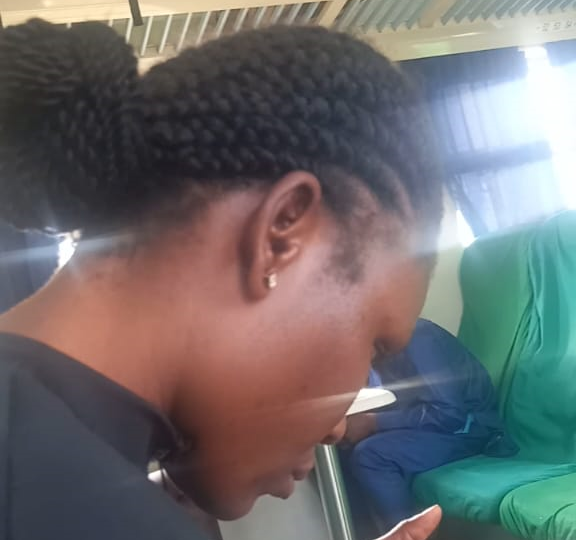
When TheCable contacted Yakub Mahmoud, NRC spokesperson, he denied the allegations of officials collecting cash and transfers to their personal accounts. He said: “Do not believe in lies.”
But nothing seems to have changed thereafter. On October 2, one Daramola Adenike, accused the NRC officials of ticket racketeering.
“On my way to Lagos from Ibadan today, some NRC employees lured us to board the train without tickets. Initially, they acted like they were taking us to the ticket counter only for them to lead us to the Railway without an official ticket. They collected cash on transit,” she wrote.
WHAT’S THE WAY OUT?
Speaking to TheCable on the outcome of the investigation and possible ways the government can improve accountability and transparency, Oluwaseun Olorunmaye, director, SMC Advisory Limited, said there is an urgent need for the government to partner with the private sector to eradicate corruption in its nearest minimum.
“I am aware of this sad reality for the Lagos-Ibadan train services,” Olorunmaye said.
“However, the story seems to be different for the Abuja-Kaduna railway services because of the integration of technology. Train users can only book tickets online or e-tickets at the train station with their NIN. I believe a replication of this e-ticketing will help bring about transparency and stop possible diversion of revenue to private pockets.
“From a private sector perspective, I would opine that the government has no business being in business; they should only create an enabling environment.
“I commend the government for providing this commendable service; however, it may be best to enter a public-private partnership (PPP) arrangement with a private firm for the optimal management of the train services. PPP models have globally proven to be the best way to manage infrastructure considered as social goods.”
Olorunmaye emphasised that technology should be deployed as it would play a significant role in addressing the issue of corruption in train services.
“Implementing e-ticketing not only reduces corrupt practices but also provides a digital trail of transactions, making it easier to track and monitor ticketing vis-à-vis passengers accreditation,” he added.
Corroborating him, Ayokunle Olubunmi, head of financial institutions ratings at Agusto & Co, said the NRC should contract the ticketing system to the private sector to reduce leakages.
“You will agree with me that if you want to travel by air, few people will say that they are going to buy their ticket at the airport. Most of the time, you book in advance. You do not only book the ticket, you even book the particular seat for that trip,” the financial expert said.
“I think something like that particular service should be extended to all train stations because there are a lot of leakages that the government is experiencing. So, they can make it easier and make it mandatory to book your ticket online.
“They can also have mystery shoppers who will go on the train without the officials knowing who they are and anyone caught collecting cash or transfer should be arrested immediately.”
Olubunmi also said the NRC needs to look at improving its services in terms of speed limit, and station location and provide adequate maintenance to preserve its patronage.
This is a special investigative project by Cable Newspaper Journalism Foundation (CNJF) in partnership with TheCable, supported by the MacArthur Foundation. Published materials are not the views of the MacArthur Foundation.
Add a comment
